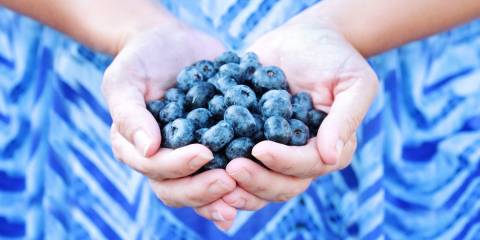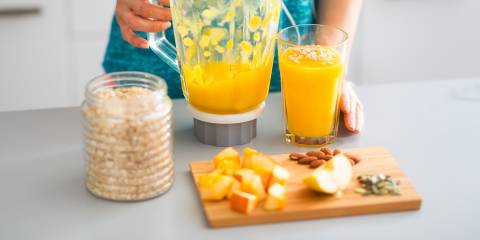What a world-gone-crazy time it is when you can write “produce” and “avoid” in the same sentence. In my version of paradise we don’t need lists to tell us what not to eat because of pesticide contamination, thanks to a spiraling out-of-control food system. But here we are, with the Environmental Working Group's (EWG) Shopper's Guide to Pesticides.
In you've never seen the guide before; it lists the 'Dirty Dozen', the top 12 fruits and vegetables you should buy organic, in ranking of pesticide contamination, and the 'Clean 15', the top 15 fruits and vegetables lowest in pesticides that are okay to purchase conventionally-grown, if organic isn’t available. An EWG simulation of thousands of consumers eating high and low pesticide diets shows that people can lower their pesticide exposure by almost 80 percent by avoiding the top twelve most contaminated fruits and vegetables and eating the least contaminated instead.
According to EWG, every year new research is published demonstrating the toxicity of pesticides to human health and the environment, often at doses previously declared “safe” by the pesticide industry and the government. As acknowledged by the U.S. and international government agencies, different pesticides have been linked with a variety of toxic effects, including nervous system effects, carcinogenic effects, hormone system effects, and skin, eye and lung irritation.
Ideally, for the environment, we would all choose organic all the time. But for many that's not realistic, so this list can be very helpful in guiding you to make the healthiest choices available to you. You can download the complete EWG's Shoppers's Guide to Pesticides here.
Here is what to look for in your spring produce shopping:
Buy Organic or Don’t Buy
Five Spring items with the highest pesticide loads:
- Celery
- Peaches
- Strawberries
- Apples
- Blueberries
Aim for Organic, But Conventional Will Do
Five Spring items with the lowest pesticide loads:
- Onions
- Avocado
- Sweet Corn
- Pineapple
- Mangos



